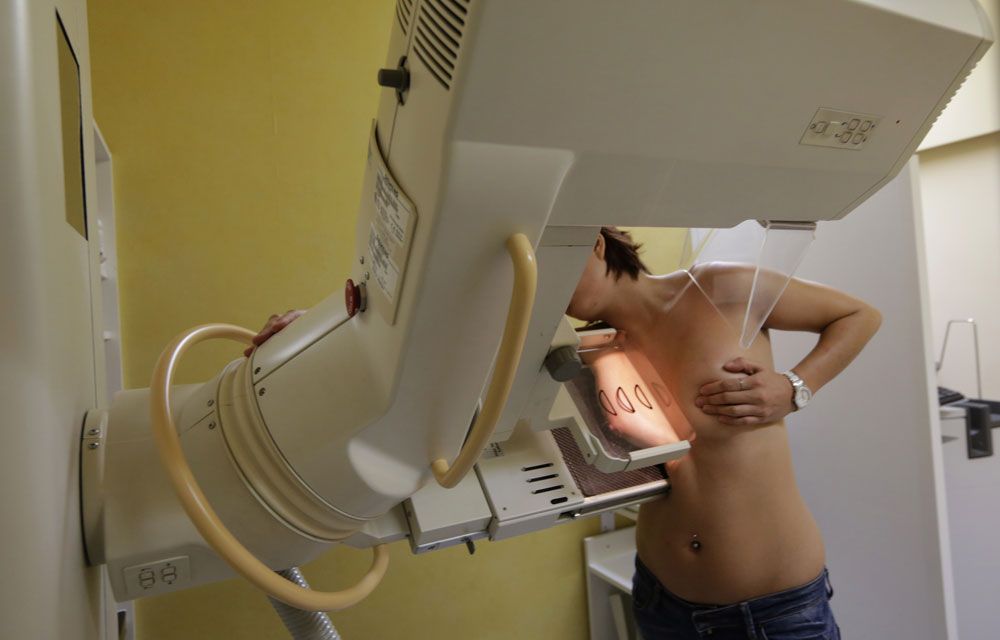The approach multidisciplinary in the care of chronic diseases has become essential to optimize patient health outcomes. By integrating various medical specialties, this method aims to offer complete care and personalized, while placing the patient at the center of the process. This model considers individuals as active partners in the management of their health, thus promoting collaboration effective between different health professionals. Therapeutic education also represents a key aspect of this approach, strengthening patients’ adherence and their ability to manage their condition independently.

The approach multidisciplinary constitutes an essential framework for the management of chronic diseases. Chronic diseases, such as diabetes, hypertension, or cardiovascular diseases, require continuous and integrated care. Beyond standard medical treatments, the involvement of multiple medical disciplines is crucial to optimize health outcomes. These diseases require therapeutic strategies that go beyond medical prescriptions; they also include psychosocial, nutritional and functional rehabilitation dimensions.
In this complex environment, each healthcare professional brings unique expertise, thus contributing to a holistic view of the patient. Therefore, involving experts such as general practitioners, specialists, psychologists, nutritionists, and nurses ensures more comprehensive and effective management of chronic diseases. This integration of skills also promotes the sharing of knowledge and best practices, beneficial to all professionals involved in care.
The main advantage of this approach is the treatment of the patient as active partner in his own health. The patient is thus encouraged to become the manager of his or her health condition. This autonomy is stimulated by programs oftherapeutic education, which inform the patient about their illness, the treatments available, and provide them with the necessary tools to adopt behaviors favorable to their health. This includes advice on lifestyle, physical activity, nutrition, but also psychological support to better manage the stresses and emotions linked to their illness.
One of the cornerstones of the multidisciplinary approach lies in the communication between the different healthcare stakeholders. The establishment of a shared medical record allows all stakeholders to have up-to-date and relevant information on the patient. This transparency of information promotes the coordination of care, thus minimizing the risks of inappropriate treatments or duplication of examinations. In addition, regular meetings of the multidisciplinary team make it possible to adjust action plans in real time, according to the evolution of the patient’s condition.
At the heart of the multidisciplinary approach is the disease management strategy. This method, focusing specifically on patients with chronic conditions, seeks to coordinate and optimize care and disease management. Disease management programs, often funded by social security or health insurance companies, involve a comprehensive assessment of patient needs and the creation of personalized care plans. The ultimate goal is to reduce complications and improve patients’ quality of life.
Another essential aspect of the multidisciplinary approach is the integration of digital health technologies. Connected medical devices allow continuous monitoring of the patient’s health status and facilitate treatment follow-up. These modern tools do not replace human contact, but on the contrary, enrich the interaction between the patient and health professionals, and allow prompt care in the event of decompensation of the health status.
Telemedicine is another innovation that has gained popularity in the management of chronic diseases. It allows healthcare professionals to remotely monitor their patients, conduct online consultations, and ensure that patients are adhering to their treatments and regimens. Studies show that telemedicine can improve patient compliance and reduce hospitalizations, a crucial issue in the management of chronic diseases.
It is essential to mention that the multidisciplinary approach is not limited to simply connecting different medical specialties, but also involves interprofessional coordination and mutual respect between the different stakeholders. Concerted efforts must direct care towards the specific needs of patients, respecting their individuality and their life journey. Multidimensional assessment tools play a key role in this personalization of care, allowing adjustment of interventions according to the evolution of the disease and the patient’s preferences.
Within this dynamic, the importance of patient education is significant. In fact, the educational role health professionals is essential. This involves training the patient to understand their state of health, their symptoms, but also the risks associated with their illness. For example, for diabetic patients, it is crucial to master the signs of hypoglycemia, the principles of a balanced diet, and the importance of physical activity. This education plays a fundamental role in the prevention long-term complications, which may result from inappropriate management of the disease.
At the same time, particular attention must be paid to psychosocial dimensions chronic diseases. The psychological impact of living with a chronic illness can be significant. Patients may experience feelings of anxiety, depression, or social isolation. The integration of psychologists and social workers within the interdisciplinary team ensures comprehensive care adapted to the emotional and psychological needs of patients. These professionals can help patients develop coping strategies and better manage the emotions related to their condition.
As part of this multidisciplinary approach, it is also appropriate to mention the importance of primary prevention and early detection of chronic diseases. The implementation of screening programs, combined with awareness-raising initiatives, helps reduce the incidence of these diseases. This preventive axis is particularly relevant in populations at risk, where the introduction of early interventions can modify the course of the disease.
Public health policies also play a fundamental role in initiating and supporting multidisciplinary approaches. Governments and health organizations must encourage the creation of networks of health actors, promoting the sharing of resources and information. Studies show that care organized through these networks can lead to better quality of care and improved health outcomes for patients with chronic conditions.
Finally, the future of chronic disease management lies in innovation and multidisciplinary research. It is fundamental to continually evaluate and improve current practices. Research must question disease concepts, treatment methods, and the social implications of chronic pathologies. New approaches such as nutraceuticals, acupuncture or even medical nanotechnology must be explored as potential tools in the context of this support. These innovations will make it possible to diversify therapeutic avenues and provide solutions adapted to the various needs of patients.
In short, the approach multidisciplinary is inseparable from the care of chronic diseases. It provides a structured and effective framework to meet the complex needs of patients. By promoting patient autonomy, promoting communication between healthcare stakeholders and using modern technologies, it is possible to optimize clinical results and patients’ quality of life.

The multidisciplinary approach in the management of chronic diseases represents an essential strategy for optimizing the patient health journey. By integrating the skills of various healthcare professionals, this method aims to provide global and personalized monitoring, where the patient becomes a key player in their own health management. This strategy is based on close collaboration between doctors, nurses, psychologists, nutritionists and other specialists, in order to adequately respond to the complex needs of people with chronic illnesses.
Importance of therapeutic education
A fundamental aspect of the multidisciplinary approach is thetherapeutic education. This initiative equips patients with the knowledge necessary to understand their condition and make informed decisions regarding their treatment. Through workshops and individual sessions, patients are trained in managing their symptoms, using their medications appropriately, and adopting positive health behaviors. Effective education promotes adherence to treatments and improves the quality of life of patients.
Care coordination
There care coordination is a central pillar of multidisciplinary care. It ensures that each member of the healthcare team works in harmony towards a common goal: the well-being of the patient. This involves the establishment of clear communication protocols between the different stakeholders. General medicine physicians play a crucial role in this dynamic by often being the patient’s entry point into the health system. They orchestrate consultations with other specialties and ensure that relevant information flows efficiently.
Role of digital health technologies
THE digital health technologies are also powerful allies in the multidisciplinary approach. Thanks to tools such as telemedicine, health tracking applications and connected medical devices, it is possible to monitor the health status of patients remotely. These technologies allow regular monitoring and increased responsiveness to changes in health. In addition, they facilitate access to educational resources and real-time support, thus strengthening patient engagement in their care journey.
Continuous evaluation and adjustment of treatments
For the multidisciplinary approach to be effective, it is crucial to carry out continuous assessment of the state of health of patients. Care teams must regularly review the results obtained, adjust treatments and analyze the impact of different interventions. This flexibility makes it possible to respond quickly to the evolving needs of patients and optimize their care. Structured monitoring, including regular check-ups, is essential to identify possible problems and guarantee appropriate and personalized care.
Patient engagement and active partnership
Finally, it is imperative to consider the patient as a active partner in its care. This involves promoting open communication, where the patient feels listened to and understood. Teams should encourage patients to express their expectations and participate in decisions about their treatment. Psychological support and emotional accompaniment play a vital role in this dynamic, as they help to build confidence and maintain high motivation for treatment follow-up.










